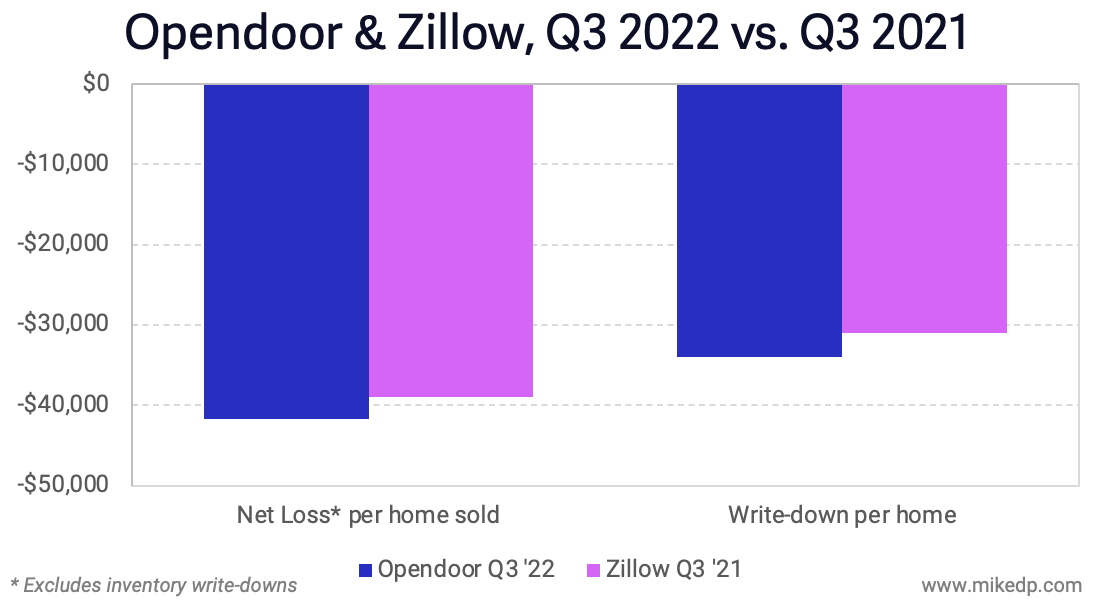One Year Later: Zillow Offers & Opendoor
/Last week Opendoor announced that it lost nearly $1 billion during the third quarter of the year — the result of selling too many homes at a loss.
Why it matters: Exactly one year ago Zillow faced a similar situation with its iBuyer business, Zillow Offers — and subsequently shut it down.
The cause and effect in each case is similar, with nearly identical financial implications, but the paths forward differ.
Dig deeper: Opendoor’s net loss of $928 million for the quarter is more than double Zillow Offer’s net loss of $422 million in Q3 of last year.
It’s a matter of scale: Opendoor sold more than twice as many homes as Zillow (8,520 vs 3,032).
The net loss also includes significant inventory write-downs: $573 million for Opendoor and $304 million for Zillow.
On a per home basis, each company incurred similar losses.
The write-down per home in inventory is nearly identical, showing that both companies were guilty of “unintentionally purchasing homes at higher prices than current estimates of future selling prices.”
Zillow’s decision to shut down Zillow Offers in Q3 2021 likely protected the company from at least a billion dollars of additional loses.
It also returned the company to profitability (on an adjusted EBITDA basis) and removed the uncertainty of wild profitability swings.
Meanwhile, Opendoor will endure at least six months of unprecedented financial losses.
(Adjusted EBITDA excludes inventory write-downs, stock-based compensation, and property financing expenses.)
What to watch: Opendoor is making significant changes to reduce its risk in response to the volatile real estate market.
It is buying significantly fewer homes, and making lower offers on the homes it does purchase.
The company launched a new, asset-light marketplace to connect buyers and sellers, without Opendoor actually purchasing the home (more on this in a future analysis and my upcoming webinar).
Opendoor also quietly shut down its entire mortgage operation, Opendoor Home Loans.
Key learnings: It is very challenging for an iBuyer to respond to sudden market volatility, especially changes in home price appreciation.
At the desired scale iBuyers want to operate at, the results of downward pricing pressure can be financially catastrophic.
Asset-light — not buying the actual house — is taking more prominence in the evolution of the iBuyer business model (and is a key component of the Power Buyer model).
The bottom line: In retrospect, Zillow’s decision to shut down Zillow Offers was the right call: it prevented additional loses, preserved the core business, and positively refocused the company.
But while Zillow Offers folded, Opendoor has no choice but to continue on in a challenging and volatile market — making adjustments to its business model as it goes.















